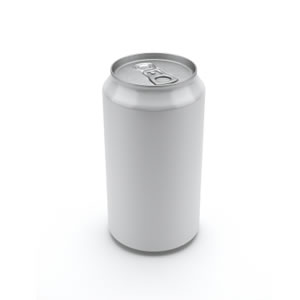Last updated on August 19th, 2022 at 11:12 pm
 It’s been a while since I discussed BPA (Bisphenol-a) here on the site, but I think now is a good time to refresh everyone’s memory. It’s been years since we as consumers managed to get BPA a topic of concern for companies who use it. We changed things with our dollars and our words. We don’t want hormone disruptors in our products. Period. So in the last few years companies have scrambled to phase out BPA to meet our demands. The problem is, do we trust these companies to now have our best interest? Or are they just looking to bandage the situation to protect their investments? It depends on the company.
It’s been a while since I discussed BPA (Bisphenol-a) here on the site, but I think now is a good time to refresh everyone’s memory. It’s been years since we as consumers managed to get BPA a topic of concern for companies who use it. We changed things with our dollars and our words. We don’t want hormone disruptors in our products. Period. So in the last few years companies have scrambled to phase out BPA to meet our demands. The problem is, do we trust these companies to now have our best interest? Or are they just looking to bandage the situation to protect their investments? It depends on the company.
Some companies have tried to find alternatives to BPA and they can now tout “BPA Free” on their labels and be saved in the eyes of their buyers. But before you buy into the safety claims, there are things to remember. BPA was used and severely under tested before it became a mainstream component. It’s replacements are not looking much better. A chemical called Bisphenol-S (BPS) was used to replace BPA mainly in cash register receipts and other products. However, studies show that it too, has the same type of hormone-mimicking ability as BPA.
This is not surprising news to me at all. I do encourage people to choose BPA-free options. Still, I think now that we have a better grasp on the dangers of chemicals and the materials around us, we can change our lifestyles to avoid more chemicals rather than specific ones.
Looking Back: BPA Crash Course
Bisphenol Chemicals How Do To Avoid Them?
BPA Free doesn’t mean a product is perfect, and it also doesn’t mean there is an equally dangerous chemical lurking in it’s absence. BPA and BPS lurk in cash register receipts, canned food, soda cans, and on paper money – not just baby products like we once thought. It can be drastically reduced with some easy changes to your life style.
- Choose glass over canned when possible. It is true, lids on glass jars can have some traces of BPA from the coating but the levels of BPA in a glass container versus a can are substantial.
- Choose fresh or frozen. Frozen veggies are sometimes flash frozen right after harvest so they maintain a higher nutritional value than canned. Or scrap it all and buy fresh… even better, fresh organic.
- Shop locally: Farmers markets and farm stands are a great way to get produce without the packaging.
- Decline the receipts: If you don’t need it let them know.
- DIY Soda: If you must drink soda, buy in glass or try making your own. I hear the Soda Stream is pretty cool.
- Look for safer or natural materials in cookware, kitchenware and food storage.
What steps are you making to avoid chemicals in your life?

